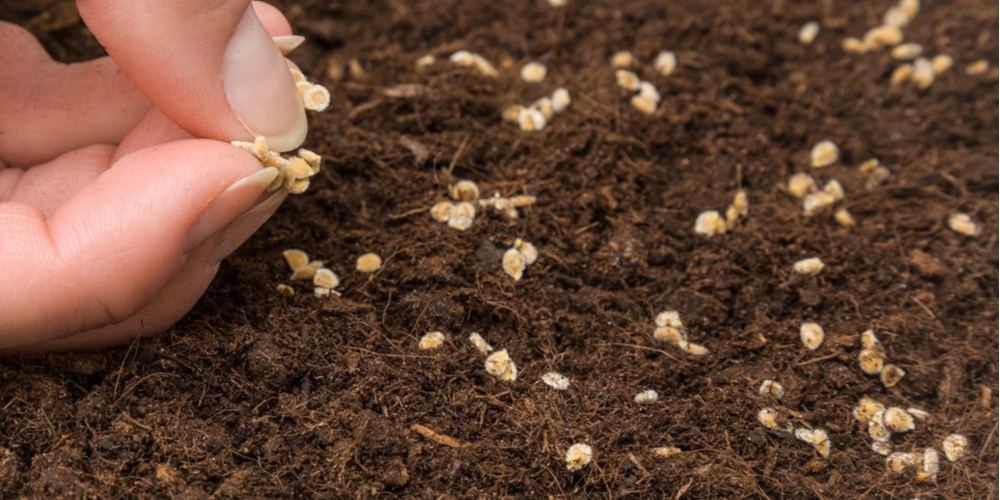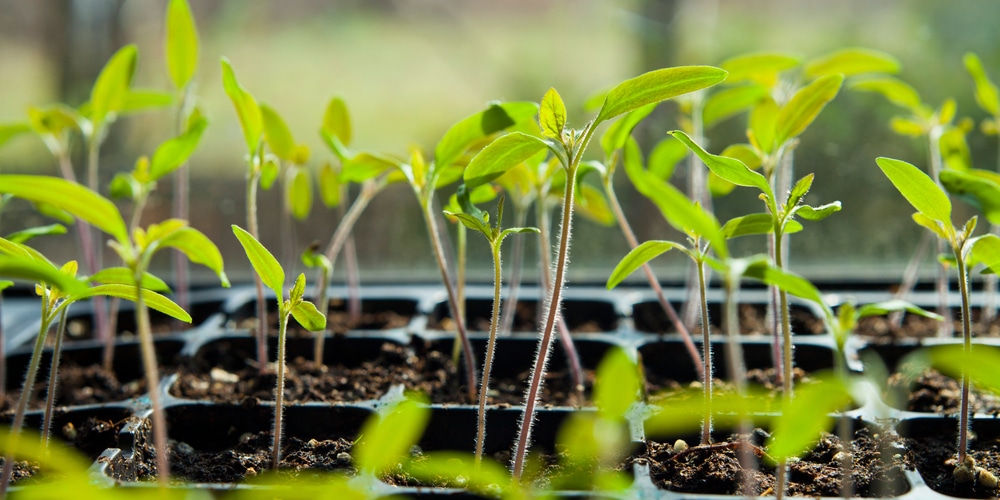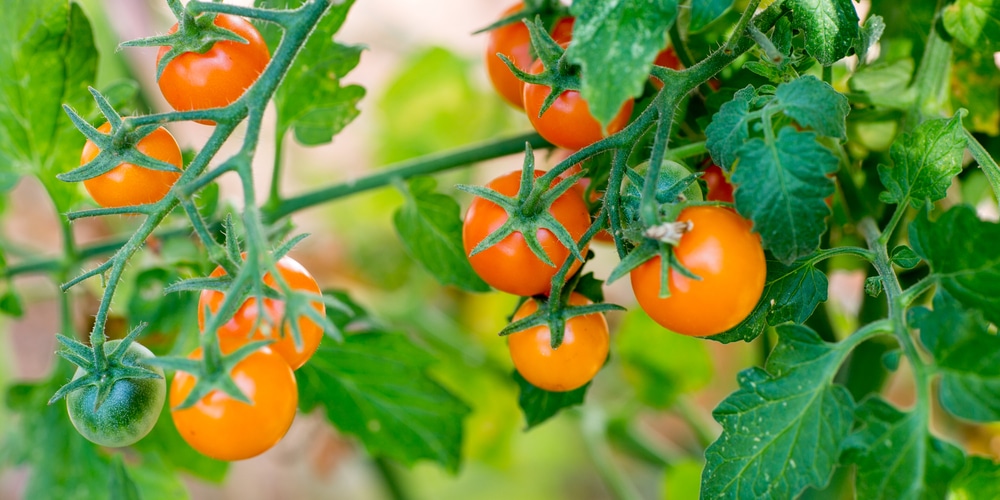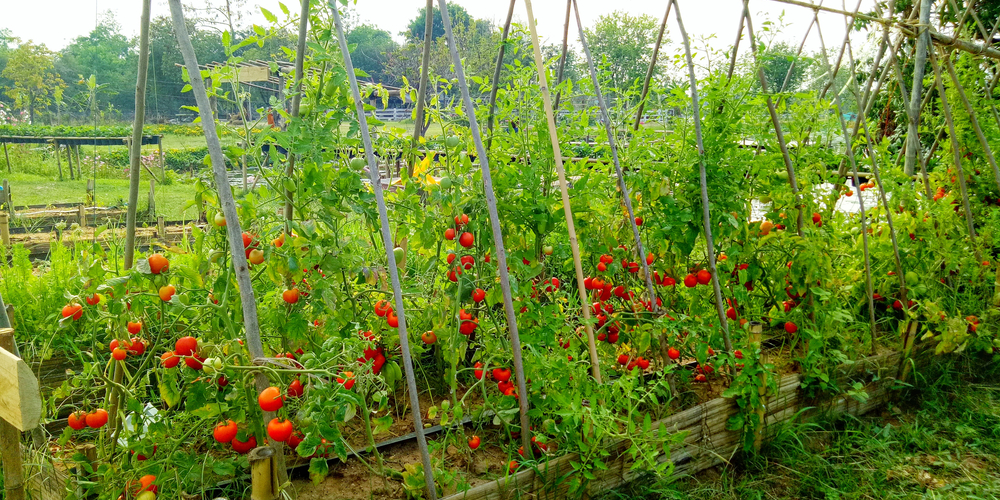Tomatoes are one of the most popular home garden vegetables. They are relatively easy to grow, producing a bountiful crop of delicious fruit. Most homes use tomatoes in some way, whether they are eaten fresh, used in sauces, or canned. According to the University of Tennessee, many homes in the state grow tomatoes.
If you’re planning on growing tomatoes in Tennessee, learning when and how to grow them is crucial.
Tomato Plant: A Brief Overview
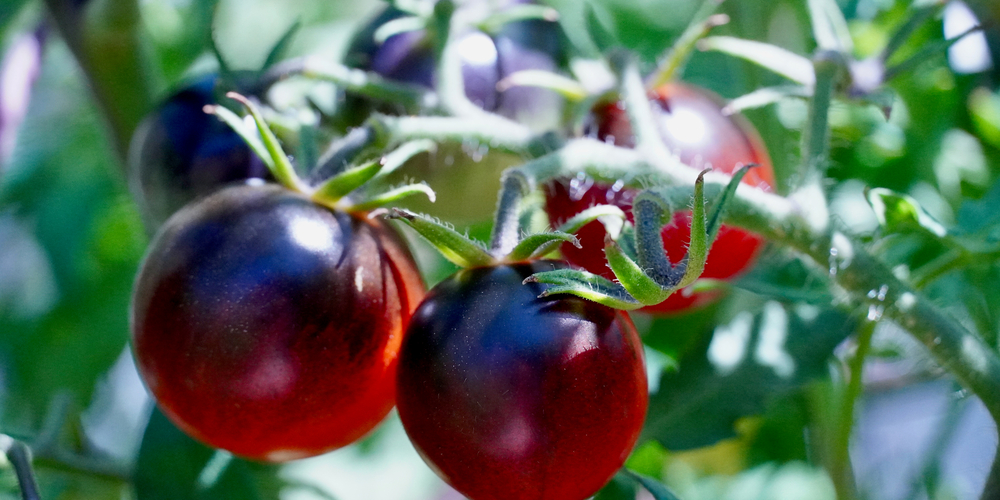
Tomatoes are a fruit that is technically classified as a berry. The plant belongs to the nightshade family, including potatoes and eggplants. Tomatoes are warm-season plants, which means they need warm temperatures to grow properly.
Its basic requirements are full sun, well-drained soil, and consistent moisture. Depending on the variety, tomatoes can be determinate or indeterminate. Determinate varieties grow to a specific size and stop growing.
They are often used for canning or other uses where uniformity is essential. Indeterminate varieties keep growing and producing fruit all season long.
When to Plant Tomatoes in TN?
Generally speaking, tomatoes are susceptible to cold temperatures and can be damaged by frost. This means that it’s important to wait until all danger of frost has passed before planting tomatoes outdoors in Tennessee. Depending on the region of the state, this can be anytime from late April to early May.
Late April is usually the safe bet for most of the state. However, if you live in a more northern region, it’s best to wait until early May.
You can always start your tomatoes indoors if you want to get a head start on the growing season. Alternatively, you can wait until June to ensure that the weather is warm enough.
Considerations When Planting Tomatoes in Tennessee
Despite their popularity, tomatoes can be challenging to grow in some areas. They are susceptible to several diseases, including early and late blight, fusarium wilt, and verticillium wilt. These diseases can cause the plant’s leaves to turn yellow and brown and eventually kill the plant.
Tomatoes are also particularly sensitive to changes in temperature and moisture. They need steady, consistent weather to grow properly. Fluctuations in temperature and humidity can cause the fruit to crack or split. With that being said, it’s important to choose a variety that is well-suited to the Tennessee climate.
Some of the best varieties for growing in Tennessee include ‘Better Boy, ‘Big Beef,’ ‘Celebrity,’ and ‘Mountain Pride.’
When it comes to planting tomatoes, timing is everything. This will help determine whether your plants are successful or not.
Fluctuating weather conditions, disease, and pests can all wreak havoc on your tomato crop. If you’re unsure about when to plant, you can always start your tomatoes indoors or wait until June, when the weather is more consistent.
How to Plant Tomatoes in Tennessee
Once you’ve determined that it’s safe to plant your tomatoes, it’s time to get started. You can either start your plants from seed or purchase them from a local nursery. Here’s how:
Planting Tomatoes in TN: Starting from Seed
If you’re starting your tomatoes from seed, you’ll need to plant them indoors about 6-8 weeks before the last frost date. This isn’t just applicable to Tennessee – it’s true for most of the United States.
To start your seeds, fill a planting tray with a high-quality seed starting mix. This is different from potting soil and is designed to be light and airy to promote proper drainage. Once you’ve filled your tray, create small indentations in the soil and plant 2-3 seeds in each one.
Tomato seeds are very small, so you don’t need to plant them very deeply. Just press them into the soil so that they’re about 1/4 inch below the surface. Once you’ve planted your seeds, water them well and place the tray in a warm, sunny location.
Keep the soil moist but not wet, and wait for your seeds to germinate. This can take anywhere from 5-14 days. Once they’ve sprouted, thin out the seedlings so that only the strongest one remains in each indentation.
Continue to care for your seedlings indoors until all danger of frost has passed. When the weather is warm and consistent, you can transplant them into your garden.
Planting Tomatoes in TN: Purchasing Plants
If you don’t want to start your tomatoes from seed, you can always purchase them as young plants from a local nursery. This is a great option if you’re short on time or if you’re new to gardening.
When purchasing tomato plants, look for ones that are about 6-8 inches tall with healthy leaves. Avoid any that are wilted, yellow, or brown spots. These could be signs of disease or pests.
Once you’ve selected your plants, it’s time to transplant them into your garden. Choose a location that gets at least 8 hours of sun per day and has well-drained soil. Tomatoes need a lot of sunlight and won’t do well in shady areas. Planting them in the shade may result in leggy plants with fewer fruits.
To transplant your tomato plants, dig a slightly larger hole than the root ball. Gently remove the plant from its container and place it in the hole. Cover the roots with soil and water well.
It’s vital to water your plants deeply after transplanting them. This will help reduce transplant shock and promote root growth.
Caring for Your Tomato Plants
Once your tomato plants are in the ground, there are a few things you need to do to ensure that they’re healthy and productive.
First, you need to provide them with adequate water. Tomato plants need about 1-2 inches of water per week, either from rainfall or irrigation. Water your plants deeply but less often to promote deep root growth.
Second, you need to fertilize them regularly. Use a high-quality tomato fertilizer and follow the directions on the package. Over-fertilizing your plants can damage their roots and make them more susceptible to pests and disease.
Last, you need to monitor your plants for signs of pests or disease. Look for yellowing leaves, brown spots, or wilting. These could be signs that your plants are not getting enough water or that they’re infested with pests.
If you notice any of these signs, take action immediately to correct the problem.
When to plant tomatoes in TN: Final Thoughts
The challenging part of growing tomatoes in Tennessee is the short growing season. However, with a little effort, you can have a successful tomato crop. Just be sure to start your plants early, choose a sunny location, and water them regularly.
Related article: Best Vegetables to Grow in Tennessee?
